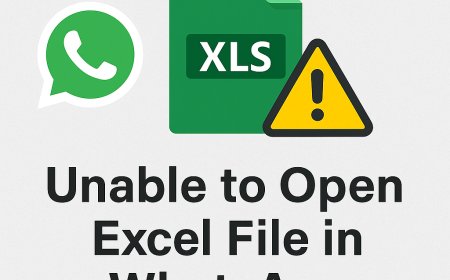What Documents You Need Before Buying a Real Estate Property
Understanding the essential documents needed before buying a real estate property ensures a smooth, legal, and stress-free transaction. Here’s your complete checklist for a successful property purchase.

Purchasing real estate is a major financial decision, whether you're buying your first home or adding another investment to your portfolio. To avoid legal issues, delays, or hidden surprises, its crucial to gather and verify the right set of documents before committing to any purchase. Here's a comprehensive guide that breaks down the essential documents you need before buying a real estate property.
1. Sale Deed
The sale deed is the most important legal document that proves the transfer of property ownership from the seller to the buyer. It outlines all the details of the transaction, including the names of the parties involved, property description, terms of sale, and sale price. This document is required for property registration, so ensure it's original and free from discrepancies.
Why Its Important:
It acts as the primary legal proof of ownership once the property has been transferred to your name.
2. Title Deed (or Mother Deed)
This document traces the historical ownership of the property. It helps verify whether the seller has a legal right to sell the property and whether the title is clear, marketable, and free from disputes. The title deed should ideally be checked for a minimum of the last 30 years.
Why Its Important:
It assures you that the property has not been involved in any legal disputes or wrongful transfers.
3. Encumbrance Certificate
An encumbrance certificate confirms that the property is free from any monetary or legal liabilities, such as loans, mortgages, or legal dues. You can obtain this certificate from the sub-registrars office for a specific period.
Why Its Important:
It ensures the property is not pledged and there are no outstanding loans against it.
4. Approved Building Plan
The seller must provide a copy of the approved building plan issued by the local municipal authority. It confirms that the construction on the property complies with applicable laws and zoning regulations.
Why Its Important:
Buying a property without approved plans can result in penalties, demolition, or legal issues in the future.
5. Property Tax Receipts
Ask for the last few years of property tax receipts paid by the seller. This proves that the property tax has been regularly paid and there are no pending dues with the municipal corporation.
Why Its Important:
It confirms the legitimacy of the property and shows that the seller is the rightful owner.
6. Occupancy Certificate (OC)
An occupancy certificate is issued by the local municipal body once a building is completed and deemed fit for occupation. It confirms that the building has been constructed according to the approved plan and follows local laws.
Why Its Important:
Without an OC, the building might be considered illegal, which can cause problems with utilities and resale in the future.
7. Completion Certificate
This document certifies that the construction is completed according to the sanctioned plan and meets all safety regulations. It is issued by the local authorities after a final inspection.
Why Its Important:
Its especially important when buying newly constructed properties to ensure lawful development.
8. No Objection Certificates (NOCs)
Multiple NOCs may be needed depending on the type of property and location. These can include NOCs from the pollution board, electricity department, water department, and more.
Why Its Important:
These certificates verify that the property complies with environmental and utility regulations and is not under restriction.
9. Khata Certificate/Extract (for Indian properties)
In many parts of India, the Khata certificate is a key municipal document that shows a property is recorded in local municipal records. It is necessary for obtaining building licenses or loans.
Why Its Important:
It helps in the registration of a new property and in paying property taxes to the local authority.
10. Loan Clearance Certificate (if applicable)
If the seller had taken a home loan on the property, make sure you obtain a loan clearance certificate or a No Dues letter from the bank. This confirms that the loan is paid off and the bank no longer has a lien on the property.
Why Its Important:
This document prevents complications from an unpaid loan on the property, which could otherwise pass on to the new buyer.
11. Power of Attorney (if the seller is not present)
If someone else is selling the property on behalf of the actual owner, make sure to check for a registered power of attorney. It must be legally valid and specific to the transaction.
Why Its Important:
It protects you from fraudulent sellers who dont have legal authority to transfer the property.
12. Identification Proofs
A copy of the sellers identification documents like a government-issued ID card (passport, drivers license, voter ID, etc.) should be collected to ensure that the person selling the property is genuine.
Why Its Important:
It helps verify the identity of the seller and ensures the transaction is legally valid.
13. Allotment Letter (for under-construction properties)
If youre buying a property directly from a builder, the allotment letter provided at the time of booking contains project details, cost breakdown, and payment schedule.
Why Its Important:
It serves as an official confirmation that the builder has allotted a particular unit to you.
14. Builder-Buyer Agreement (if applicable)
When purchasing from a developer, this agreement lays out the terms and conditions of the purchase, including possession date, amenities, payment plan, and penalty clauses.
Why Its Important:
It protects your rights and interests during the purchase and construction period.
Final Thoughts
Buying a real estate property is not just about finding the right location or priceits also about ensuring the paperwork is complete and legally sound. Missing or incorrect documents can result in complications later on, including legal disputes or financial losses. Taking the time to verify all necessary documents before signing on the dotted line is the best step toward a secure and stress-free property purchase.
Always consider seeking legal guidance when reviewing complex paperwork or if you're unsure about any documents authenticity. Being informed and cautious helps ensure that your property investment is protected and profitable in the long run.
Important Links
New Launch Condos in Singapore: What to Know Before You Book a Unit
Singapore Real Estate Taxation Explained for First-Time Buyers
Understanding Leasehold vs Freehold Properties in Singapore Real Estate
How to Choose the Right Property Agent for Buying Real Estate in Singapore
Discover the Elegance of Living at Thomson View Condo
Thomson View En Bloc Condo Showflat
Should I Rent or Buy a Home in 2025? The Ultimate Decision Guide
Real Estate Investment Tips for Beginners: Your Complete Guide to Property Success
Is Buying a Condo in Singapore Worth It in 2025?
What is the Downpayment for a Condo in Singapore?
Tags:
Related Posts
Call Boy Jobs in Pune — Join yoooo.app and Start Earnin...
asdfv Jul 15, 2025 2







































